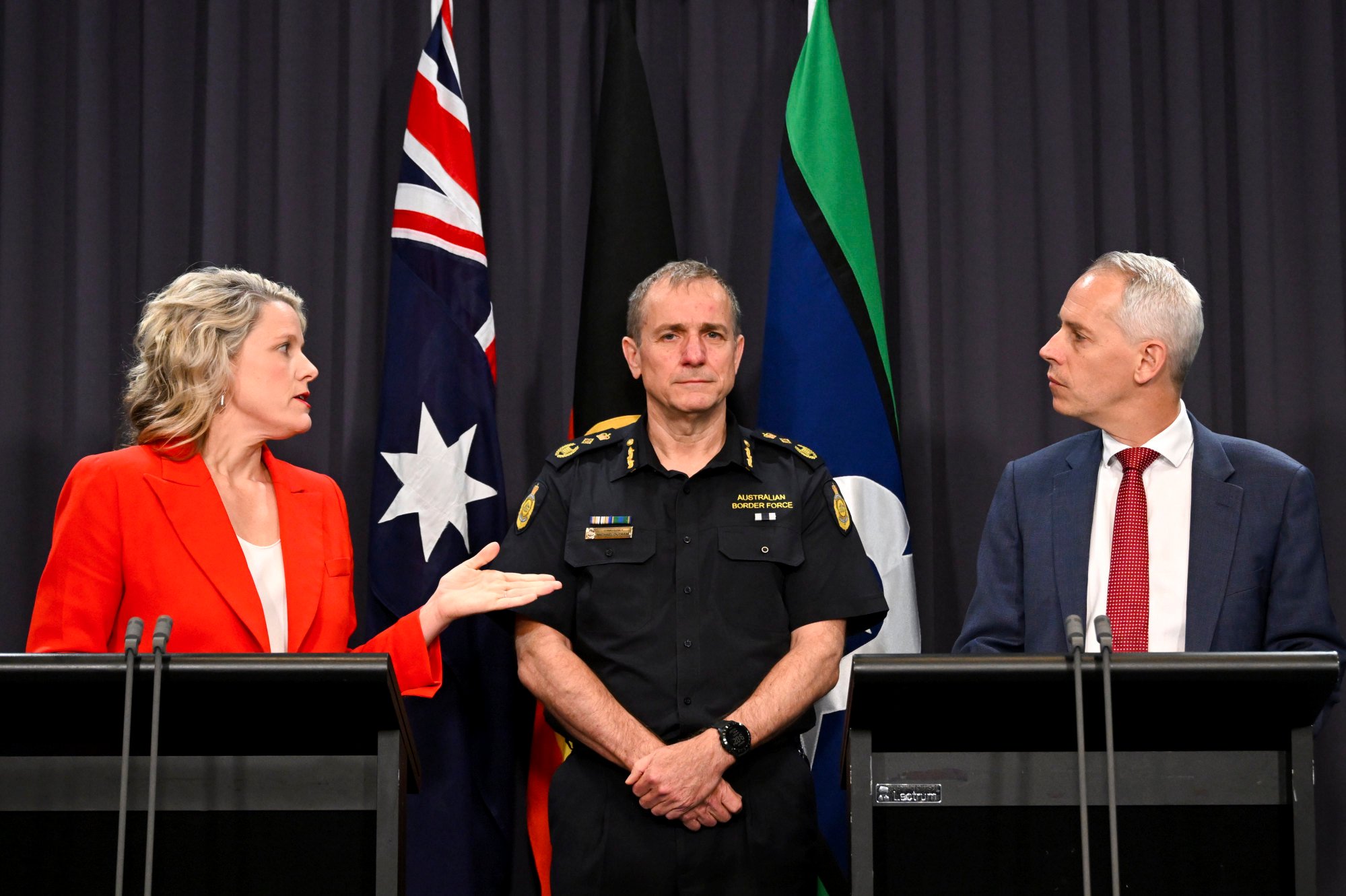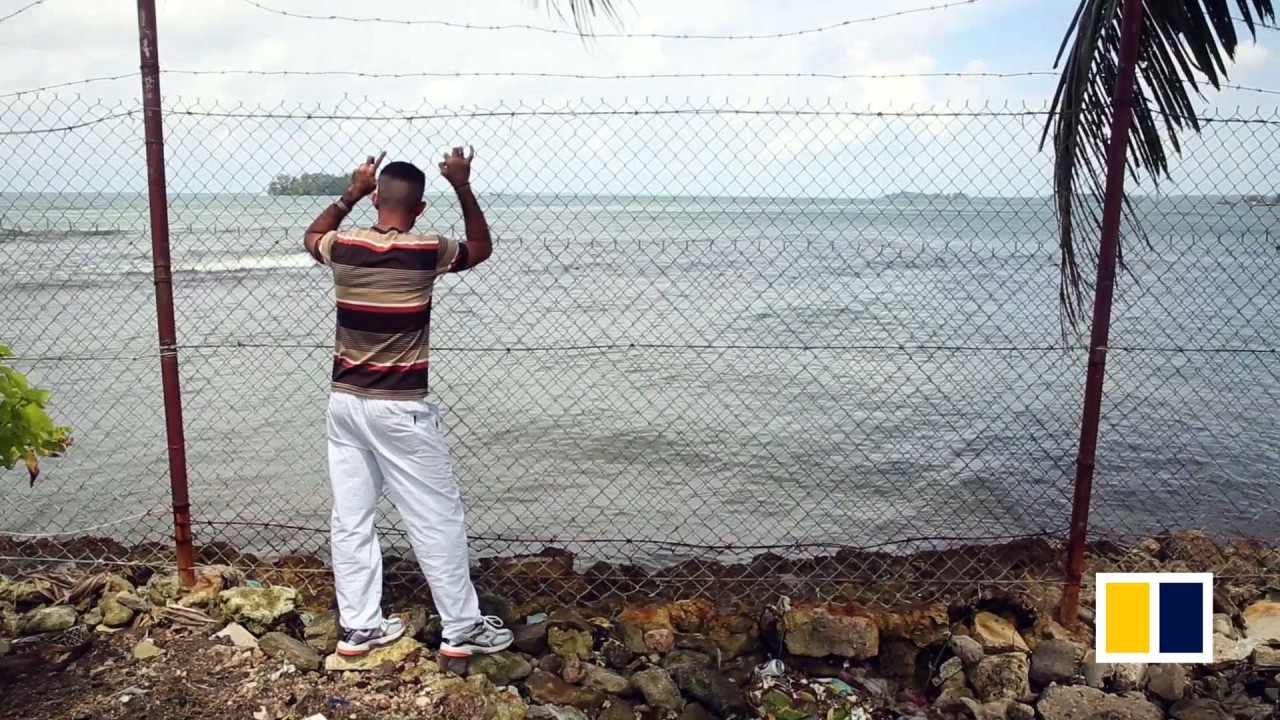Indefinite detention: how a human rights triumph became a battle over Australia’s borders
[ad_1]
“Over time, the use of detention strayed well away from its original purpose and came to serve as a proxy for other agendas, such as the deterrence of maritime asylum seekers and incarceration of non-citizens with an adverse security assessment,” Peter Hughes, a fellow at the Centre for Policy Development who previously worked for the immigration department, said in an analysis. “It has become a political tool … and a vehicle for delivery of immense cruelty.”
At the crux of the High Court’s ruling was the overturning of the government’s “executive power”, said Daniel Ghezelbash and Anna Talbot of the Kaldor Centre for International Refugee Law in their analysis of the court ruling. “That is, detention is generally punishment, which can only be ordered by courts, not the government.”
Because Australia is unique among democracies in not having a bill of rights that sets out basic civil rights and liberties, Canberra’s response to terrorism and other problems was often more extreme, said George Williams, a prominent constitutional lawyer and Scientia professor at the University of New South Wales.
Australia frees Malaysian who murdered Mongolian woman after 8 years’ detention
Australia frees Malaysian who murdered Mongolian woman after 8 years’ detention
Over the course of the policy’s lifespan – during which many anti-immigration political campaigns to deter “illegal” arrivals were unleashed, including the Coalition’s “turn back the boats” plan in 2013 – the government had become emboldened in breaching the rights of asylum seekers while ignoring international criticisms, according to Bronwyn Kelly, founder of Australian Community Futures Planning.
“[So] the executive’s idea of the limits of its power can be characterised thus: forget the parliament, forget the courts and their obligation to protect Australians from arbitrary abuse by executive governments – just exert power autocratically,” Kelly said.
That is, until now. The High Court’s ruling came in response to a challenge brought by a stateless Rohingya Muslim man known as “NZYQ”, who had arrived by boat in 2012 and could not be deported back to Myanmar where he would be persecuted. The man was granted a temporary visa until he was convicted of child sex abuse in 2015 and served time in prison.
Since their release, local media reported that four of those freed went on to be charged with crimes over the past month.

Political interests
What should have been a triumph for human rights has, however, turned into a political contest between the Anthony Albanese government and the opposition party, with both sides engaged in a tussle of one-upmanship of who had been tougher – or weaker – at border control.
The opposition also accused the government of putting the safety of Australians at risk by releasing “criminals” into the community, in what the Human Rights Law Centre said was “dangerous dog-whistling”, suggesting that convicted migrants and refugees posed a different or greater risk.
While no official data was released, HRLC’s engagement director Michelle Bennett told This Week in Asia that some of the released detainees had convictions. Those who did had completed the sentences imposed by an Australian court before they were taken into detention.
Leader of the opposition Peter Dutton was criticised for suggesting “migration zones” for those who had been released.
Some Australians shared such views, with a newspaper publishing a reader’s letter that stated: “Releasing dangerous convicted criminals into Australian society is wrong and places Australians at risk.”
Home affairs minister Clare O’Neil said she did not want such people on “our streets”, yet the law had to be followed.
“I have said repeatedly that if it were up to me, all of these people would be in detention,” O’Neil said in an interview with national broadcaster ABC last week, after being asked if non-serious offenders should be remanded.
What a refugee’s long ‘Walk for Freedom’ reveals about Australian asylum policy
What a refugee’s long ‘Walk for Freedom’ reveals about Australian asylum policy
In response, the government enacted emergency legislation just days after the ruling, mandating additional restrictions on released detainees, including the use of ankle bracelets for electronic monitoring and curfews.
Last week, after the High Court published its full reasons for the ruling, the government said it would introduce more laws, including “preventative detention” to re-detain those released.
Despite constitutional lawyers such as Williams suggesting that existing state legislation already allowed for preventative detention to be used, on Wednesday, the upper house of Australia’s parliament passed the new laws.
There was “no need” and “no basis” for the government to introduce new laws to apply to a small group of people, Bennett said. “Everyone should be treated equally before the law, regardless of their visa status. This is even more critical when basic rights such as liberty are at stake,” she said.
“The government is not free to detain non-citizens at will, or to create another punitive detention regime to replace the one that was struck down by the High Court.”
Refugee Action Coalition spokesman Ian Rintoul said the matter was “all political”.
“Australian citizens are released from prison every day. It is accepted that ‘you do the crime, you do the time’,” he told This Week in Asia.
Greens senator Nick McKim, who last week resigned as the co-chair of the Parliamentary Friends of Refugees Group in protest, said the Labor government had panicked and caved in to a “right-wing fear campaign”.
“Some people affected by this decision have not been convicted of a crime and it is deeply unfair for the government to act like they have,” he said, adding that the language the government had used had been xenophobic.
Hughes, on the other hand, said the government was doing its best to “bring the law in line with the High Court decision” and respond to a difficult opposition.
Statistics show that on average, about 170 prisoners convicted of both serious and non-serious crimes are released each day in Australia.
Last week, former refugees and human rights groups banded together to launch a campaign for a Royal Commission – an independent public inquiry and investigation – into the system.
[ad_2]
Source link


